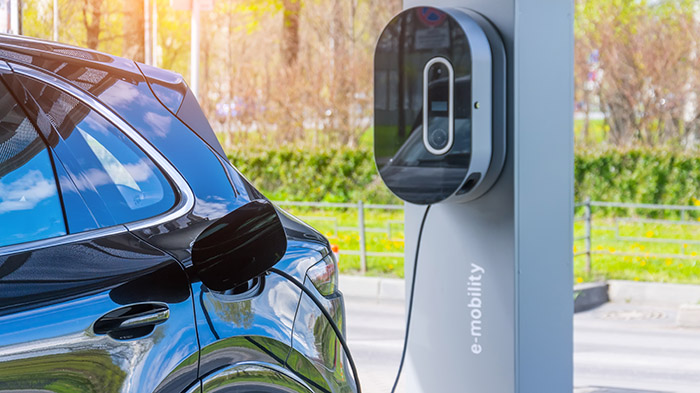Learning Electromobility is a live, teacher-led online course developed by the Swedish Electromobility Centre in collaboration with five leading Swedish universities. Designed for engineers and professionals in the transport and energy sectors, the course supports lifelong learning by offering in-depth knowledge of the technologies and systems that underpin the transition to electric mobility. Spanning ten weeks and divided into five specialised modules, the course covers both personal electric vehicles and electric trucks, ensuring a broad and practical understanding of the entire electromobility ecosystem.
You can choose which modules to attend, allowing for a tailored learning experience based on your interests and professional needs. Each module includes preparatory materials, three interactive teaching sessions, and assignments that reinforce learning through real-world applications. When you have completed a module, you will receive a certificate indicating your achievments. The course is administered by Linköping University, which provides the learning platform used in the course. The application is also submitted at Linköping University’s website.
Who can take the course?
This course is designed for professionals in the engineering and technology sectors.
Course structure
Choose from 5 independent modules, 2 weeks each.
Sessions
There are 3 live sessions per module, 120 minutes each.
Each module will have the following timeslots for the session:
- Monday and Thursday module week 1, Wednesday module week 2. Each session will be between 13:00-15:00, except the very first session that will be between 13:00-16:00, since it includes an introduction to the course.
Course modules
The course is divided into five modules, each focusing on a specific aspect of electromobility. Below is a brief overview of the modules:
Module 1: EV Energy Management and Control
Understand how energy is consumed and managed in electric vehicles. Learn modeling, simulation, and control strategies like Equivalent Consumption Minimization Strategy and dynamic programming.
Module 2: Electric Drives and Charging
Explore electric motors, power electronics, and charging systems. Includes design studies and simulation tools for powertrains and infrastructure.
Module 3: EV Energy Storage
Dive into batteries and fuel cells, from electrochemistry to integration and safety. Covers Li-ion, Na-ion, and next-gen storage technologies.
Module 4: EV Sustainability
Examine the environmental and societal impacts of EVs. Topics include life cycle analysis, battery recycling, how logistics systems need to be adapted, and how adjusted business models can be made to fit with electrification.
Module 5: EV Charging Infrastructure and Grid Interaction
Learn about the Swedish power system, smart charging, V2G, and how EVs interact with the grid. Includes economic and regulatory perspectives.
What you will learn
General learning outcomes for the course:
- Explain the key technologies and principles underlying electric vehicles, including energy storage, electric drives, and vehicle energy management.
- Analyze the technical, economic, and environmental impacts of electric vehicle systems across their lifecycle, including integration with the power grid.
- Evaluate solutions for sustainable electromobility by applying systems thinking to vehicle design, energy usage, charging infrastructure, and societal adaptation.

